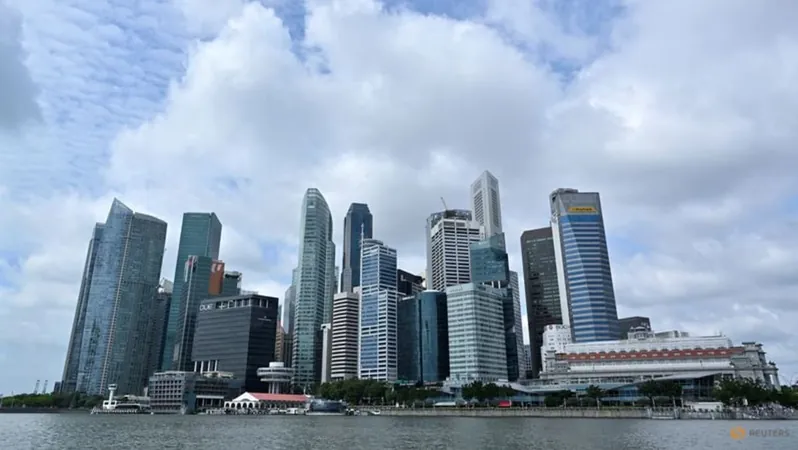
Singapore's Inflation Takes a Dip: What You Need to Know!
2025-08-25
Author: John Tan
Core Inflation Plummets to 0.5% in July
Singapore has just reported a remarkable drop in its core inflation rate, now sitting at a cool 0.5% year-on-year for July, a decrease from 0.6% in June. This statistic, revealed in a joint press release by the Monetary Authority of Singapore (MAS) and the Ministry of Trade and Industry (MTI), highlights how easing retail and other goods prices, along with a decline in electricity and gas inflation, are shaping the economy.
This new rate is not just lower than June’s figures; it's also below economists' forecasts, which had predicted a steady 0.6%. Remarkably, July’s rate matches the lowest level recorded since March.
Monthly Inflation Dynamics: A Deeper Look
On a month-to-month basis, core inflation dipped by 0.1% in July when excluding accommodation and private transport costs. Overall inflation, measured by the Consumer Price Index-All Items (CPI-All Items), also eased, dropping to 0.6% in July from 0.8% in June. This overall decline is primarily attributed to decreased accommodation inflation, paired with the softer core inflation.
The CPI in Context: What Does It Mean?
The Consumer Price Index serves as a vital tool in Singapore for gauging price changes in the economy. It tracks the price shifts of a basket of goods and services typically purchased by households. The CPI-All Items offers a broad look at consumer price movements, helping paint a picture of economic health.
Sectors on the Move: Inflation Trends by Category
In July, food inflation saw a slight bump to 1.1%, up from 1.0% in June, largely due to rising prices in food services and non-cooked items. Meanwhile, private transport inflation rose to 2.1% from 2.0% due to higher car prices.
Conversely, the cost of electricity and gas took a significant hit, shrinking from -3.9% to -5.6%, thanks to falling electricity prices. Retail and other goods experienced a decline, now sitting at -0.5% compared to June, driven down by lower prices for clothing, footwear, and home appliances. Accommodation inflation also fell to 0.5% due to smaller increases in maintenance costs and housing rents.
Services inflation remained stable as rising costs in social services were counterbalanced by cheaper outpatient care and holiday expenses.
Future Outlook: What Lies Ahead?
Looking ahead, MAS and MTI anticipate that imported inflation will remain moderately contained in the near term due to easing global crude oil prices and stable food commodity prices. Despite potential inflationary pressures from ongoing trade conflicts, Singapore's import costs are likely to see a dampening effect from weaker global demand.
Locally, rising productivity and slower wage growth are expected to stabilize unit labor costs, while enhanced government subsidies for essential services will further help keep inflation in check.
Looking ahead to 2025, both core and overall inflation are projected to average between 0.5% and 1.5%. However, economic forecasts remain uncertain, with both upside and downside risks on the inflation horizon.
Geopolitical shocks could unexpectedly inflate energy and shipping costs, while a sluggish economic growth trajectory could keep core inflation low for longer.

 Brasil (PT)
Brasil (PT)
 Canada (EN)
Canada (EN)
 Chile (ES)
Chile (ES)
 Česko (CS)
Česko (CS)
 대한민국 (KO)
대한민국 (KO)
 España (ES)
España (ES)
 France (FR)
France (FR)
 Hong Kong (EN)
Hong Kong (EN)
 Italia (IT)
Italia (IT)
 日本 (JA)
日本 (JA)
 Magyarország (HU)
Magyarország (HU)
 Norge (NO)
Norge (NO)
 Polska (PL)
Polska (PL)
 Schweiz (DE)
Schweiz (DE)
 Singapore (EN)
Singapore (EN)
 Sverige (SV)
Sverige (SV)
 Suomi (FI)
Suomi (FI)
 Türkiye (TR)
Türkiye (TR)
 الإمارات العربية المتحدة (AR)
الإمارات العربية المتحدة (AR)